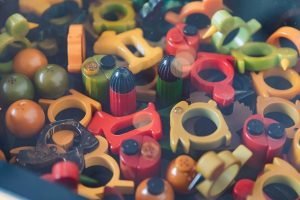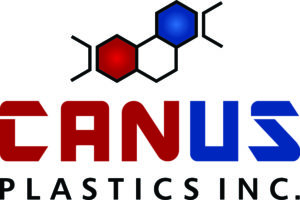How Adhesives Enhance Plastic Assemblies

Adhesives play a crucial role in the assembly of plastic products, offering a versatile and efficient method to join different parts together. By using adhesives, we achieve strong, reliable connections that can withstand various stresses and environmental conditions. This is essential for creating high-quality plastic products that meet specific performance standards.
We rely on adhesives for a wide range of applications, from simple household items to complex industrial components. This method has several advantages over traditional mechanical fastening techniques, such as screws or welding. For instance, adhesives can distribute stress more evenly across the joint, reduce the overall weight of the assembly, and even fill gaps between imperfectly matched parts.
Understanding how adhesives improve our plastic assemblies helps us create products that are not only robust but also more efficient to produce. By selecting the right adhesive and applying it correctly, we ensure that our plastic products meet the highest standards of quality and durability. The use of adhesives in plastic fabrication is a testament to our commitment to using the best materials and techniques available.
Understanding Adhesives in Plastic Assembly: An Overview
Adhesives play a pivotal role in plastic assemblies by bonding different pieces together without the need for mechanical fasteners. This method involves applying a substance that hardens to create a strong connection between plastic parts. The adhesive forms a bond by interacting with the surfaces of the plastics, creating a joint that can resist various stresses and loads.
We use adhesives in many plastic fabrication processes due to their versatility and efficiency. Unlike welding, which requires heat, adhesives can join plastics at room temperature, making them suitable for parts that might be sensitive to thermal damage. Adhesives also offer the advantage of bonding different types of plastics, which might not be possible with other methods. This flexibility allows us to tailor our assembly processes to meet specific product requirements and ensure lasting performance.
Advantages of Using Adhesives for Plastic Assemblies
- Uniform Stress Distribution: One of the key benefits of using adhesives is the even distribution of stress across the bonded joint. Unlike screws or bolts that focus stress on specific points, adhesives spread the load more evenly. This reduces the likelihood of fractures or failures and increases the overall strength of the assembly.
- Weight Reduction: Adhesives can significantly reduce the weight of plastic assemblies. Mechanical fasteners like screws and bolts add extra weight and can require additional support structures. Adhesives eliminate the need for these elements, creating lighter and more efficient products. This is particularly advantageous for applications where weight is a critical factor, such as in automotive or aerospace components.
- Improved Aesthetics: Adhesives provide a cleaner and more aesthetically pleasing finish to plastic assemblies. Since they are applied between the surfaces being joined, they don’t leave visible marks or holes like mechanical fasteners. This is important for consumer products where appearance matters, such as display cases and marketing materials.
- Gap-Filling Abilities: Adhesives can fill gaps between surfaces that are not perfectly aligned or have minor imperfections. This ability ensures a strong bond even if the components are not precisely matched. It also allows for greater tolerance in the manufacturing process, which can reduce costs and increase production efficiency.
Using adhesives in plastic assemblies presents numerous benefits that enhance the strength, appearance, and overall performance of our products. By leveraging these advantages, we create high-quality plastic items that meet diverse functional and aesthetic needs.
Common Types of Adhesives Used in Plastic Fabrication
- Epoxy Adhesives: Epoxy adhesives are well-known for their strong bonding capabilities and resistance to various environmental factors. They consist of a resin and a hardener that, when mixed, create a tough bond suitable for many plastic types. Epoxies are particularly effective in applications requiring high strength and durability, such as windshields and safety barriers.
- Cyanoacrylate Adhesives: Often referred to as super glue, cyanoacrylate adhesives bond quickly and provide a strong, instant hold. These adhesives are ideal for small plastic parts that need to be assembled swiftly. They are commonly used in products like display cases and election boxes due to their fast curing time and strong bond.
- Acrylic Adhesives: Acrylic adhesives offer flexibility and durability, making them suitable for bonding plastics that might experience stress or movement. They are resistant to environmental conditions and provide a strong hold. Acrylics are used in assembling items like podiums and tables, where the bond needs to withstand everyday use and handling.
- Polyurethane Adhesives: Polyurethane adhesives are versatile and provide a strong, flexible bond that works well with various plastics. They are known for their durability and resistance to moisture, making them ideal for outdoor applications or products that might be exposed to harsh conditions. Items like benches and certain components of windshields benefit from the use of polyurethane adhesives.
Understanding the different types of adhesives available and their applications helps us choose the best one for each project. This selection ensures that we create plastic products with the highest standards of strength, durability, and functionality.
Ensuring Strong and Durable Bonds with Adhesives
Creating strong and durable bonds in plastic assemblies involves more than just selecting the right adhesive. It requires proper surface preparation, accurate application, and careful curing. Each step in this process is crucial for achieving the best results and ensuring that our plastic products are reliable.
- Surface Preparation: Before applying adhesives, it is essential to prepare the surfaces of the plastics to be bonded. This step may involve cleaning the surfaces to remove any dirt, grease, or contaminants that could weaken the bond. In some cases, the surfaces might need to be roughened slightly to provide better adhesion.
- Accurate Application: Applying the adhesive accurately and evenly is vital for creating a strong bond. We use specialized tools and techniques to ensure that the adhesive is applied consistently across the surfaces to be joined. This approach helps in avoiding any weak spots that could compromise the bond.
- Careful Curing: Allowing the adhesive to cure properly is the final step in ensuring a durable bond. Each type of adhesive has its specific curing requirements, which might include time, temperature, and pressure. Following these guidelines precisely helps in achieving the full strength and potential of the adhesive.
By focusing on these key steps, we ensure that our plastic assemblies are strong and durable. This attention to detail in the bonding process reflects our commitment to quality and excellence in plastic fabrication.
Conclusion
Adhesives play an essential role in enhancing our plastic assemblies by providing strong, durable bonds that can withstand various stresses and conditions. From the types of adhesives we use to the meticulous processes of surface preparation and curing, each step contributes to the quality and longevity of our products. We utilize adhesives in many applications, ranging from simple connectors to complex industrial components, ensuring that each product meets the highest standards of performance and reliability.
Understanding how adhesives improve plastic assemblies helps us create products that are both functional and efficient. By leveraging advanced bonding techniques, we enhance the overall quality and durability of our plastic items. This focus on using the best materials and methods available is part of our dedication to manufacturing high-quality plastic products.
If you have specific needs for plastic products or require advanced assembly services, reach out to us at Canus Plastics Inc. We are committed to providing top-notch solutions tailored to your requirements. Contact us today to learn more about how our expertise in adhesives can benefit your projects.

